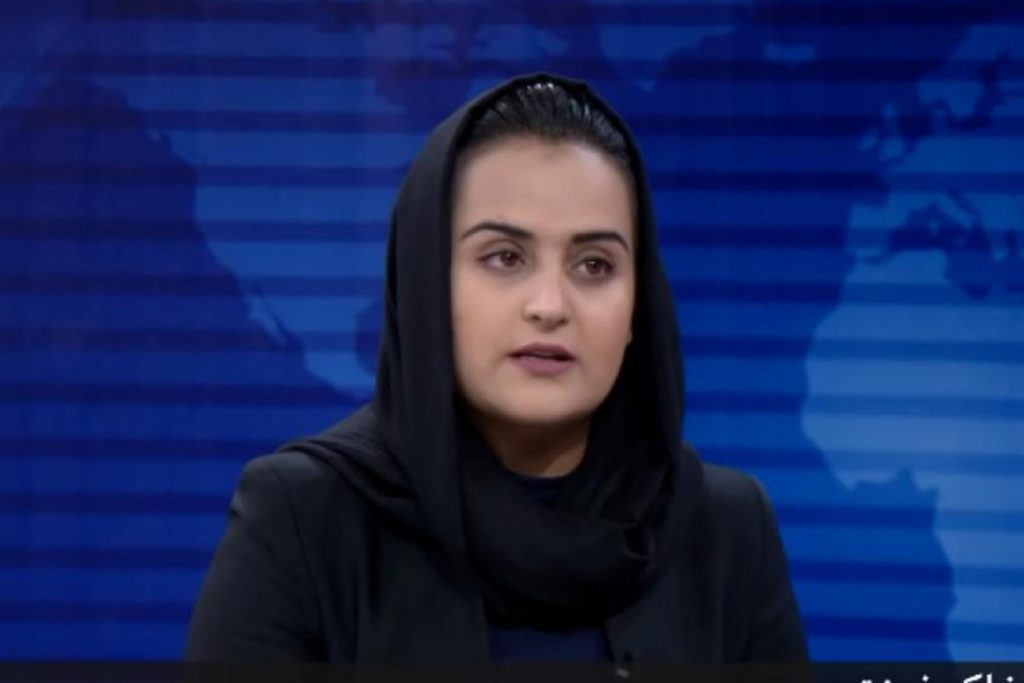The female journalist who made headlines when she interviewed a Taliban spokesperson on television just days after the insurgents seized control of Kabul, has fled Afghanistan over fears for her safety.
In that interview, Beheshta Arghand became the first female news anchor to appear on television to interview a representative of the Taliban. It has been said the interview was part of a campaign by the Taliban to “present a more moderate face to the world”.
Arghand, aged 24, has since fled to Qatar, and has revealed how the Taliban are forcing female journalists to leave the profession, and in some cases, the country.
She told CNN she felt like her safety was in danger if she remained in Afghanistan.
“I left the country because, like millions of people, I fear the Taliban,” she told the outlet.
Arghand studied journalism at Kabul University, and worked at several news agencies before she landed a reporting role at TOLONews, Afghanistan’s first 24/7 news channel.
She said she did the interview with the Tabliban for the women of Afghanistan.
“I told myself, ‘One of us must start … If we stay in our houses or don’t go to our offices, they will say the ladies don’t want to work,’ but I said to myself, ‘Start working,'” Arghand said.
“And I said to the Taliban member, ‘We want our rights. We want to work. We want — we must —be in society. This is our right.”
“I’m so unhappy because this generation really struggled for a new Afghanistan”
— BBC News (World) (@BBCWorld) August 31, 2021
Beheshta Arghand, a female journalist who made headlines when she interviewed the Taliban days after they took control, talks about fleeing her countryhttps://t.co/5PkWoi3kNZ pic.twitter.com/qNWNtx3Toy
Meanwhile, Reporters Without Borders (RSF) has called on the Taliban to provide immediate guarantees for the freedom and safety of female journalists in Afghanistan. An RSF investigation has established that fewer than 100 female journalists are still formally working in radio and TV stations in Kabul, out of the 700 women who usually work in journalism.
RSF also notes that most women journalists have been forced to stop working in the provinces, where almost all privately-owned media outlets stopped operated after the Taliban seized control.
“Taliban respect for the fundamental right of women, including women journalists, to work and to practice their profession is a key issue,” RSF secretary-general Christophe Deloire said.
“Women journalists must be able to resume working without being harassed as soon as possible, because it is their most basic right, because it is essential for their livelihood, and also because their absence from the media landscape would have the effect of silencing all Afghan women.
“We urge the Taliban leadership to provide immediate guarantees for the freedom and safety of women journalists.”
***
Support female-led journalism and join Women’s Agenda Extra today where you’ll gain access to a free 6-month subscription to digital library Scribd, with access to more than 2 million eBooks, audiobooks, podcasts, mag titles, sheet music and much more.


